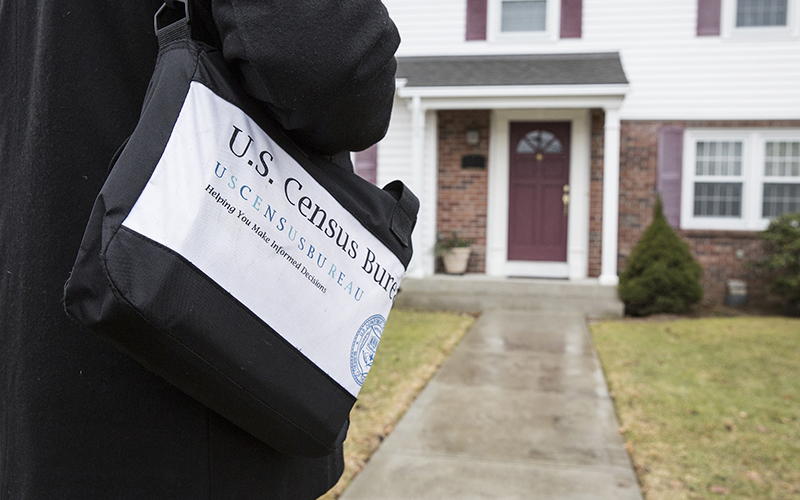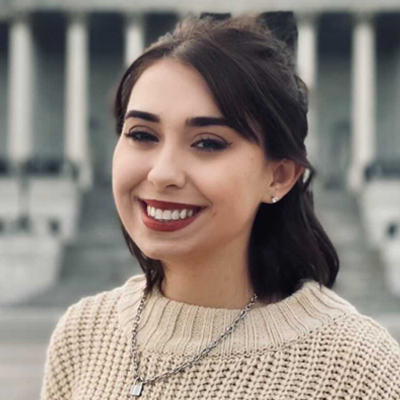WASHINGTON – Arizona advocacy groups mounted an “all hands on deck” push to boost last-minute census response rates after the Census Bureau announced plans to end the 2020 census count Thursday, two weeks earlier than expected.
The announcement came just hours after the U.S. Supreme Court on Tuesday overturned lower courts that had ordered the bureau to keep counting until Oct. 31 to ensure the most complete count possible.
The extension had been sought by advocates who said minority and underrepresented groups would be hardest hit by an undercount. They were scrambling Wednesday to get people counted before the midnight Thursday deadline.
“We’re using every tool we have at our fingertips, which is social media, which is, you know, call everybody on your contact list,” said Lydia Guzman, director of advocacy and civic engagement for Chicanos Por La Causa Action Fund. She said she hopes communities will come together to spread the word out like a “spider web.”
But while advocates were rushing Wednesday, state officials were gushing about the overall response rate of 99.9% of households, in Arizona and nationwide.
“We are proud of our statewide campaign for a complete count in the 2020 Census and our impact is clear, achieving the highest self-response rate in decades,” said Debbie Johnson, chair of the Arizona Complete Count Committee.
“Arizona is well positioned to receive its fair share of federal funding and equal representation for Arizonans for the next decade thanks to the work of our committee, the U.S. Census Bureau and our local partners,” Johnson said.
At stake in the census, as Johnson noted, are the number of seats each state gets in Congress as well as billions of dollars in federal funding over the next decade that are allocated according to the census results.
“A failure to count all individuals in this country, including immigrants, minority, low-income and tribal members, fails the future of our country and imperils billions of dollars in federal aid to our communities – including right here in Southern Arizona,” said Rep. Raul Grijalva, D-Tucson, in a statement Wednesday about the Supreme Court ruling.
Census Bureau data from 2014-2018 estimated there were more than 2.5 million households in Arizona. Even with 99.9% of households enumerated, that would leave 2,500 unaccounted for in the 2020 Census.
Guzman said that every person left uncounted in the census could cost the state $3,000 in federal funding per year.
Experts say that minority communities, including Blacks, Latinos and Native Americans, are most susceptible to an undercount. Beth Jarosz, senior research associate for the Population Reference Bureau, said especially in tribal communities that the extra time could have been what was needed for a more accurate enumeration rate for that area.

The 2020 Census is almost in the books, with the Census Bureau announcing this week that it will end enumeration Oct. 15 with 99.9% of households counted. (Photo courtesy U.S. Census Bureau)
Critics said they believe the Census Bureau’s decision to end enumeration early is part of what Grijalva called the Trump administration’s “nonstop relentless assault on the integrity of the Census.”
Joe Garcia, executive director of Chicanos Por La Causa Action Fund, said that if the goal of the census is “to get an accurate count, if that’s what the census is supposed to do, then we’ve done everything that we can to do the opposite.”
“So my only interpretation can be that all this is intentional and its mission accomplished in terms of getting an undercount,” Garcia said.
But the Census Bureau has argued that it needs to stop counting now in order to meet a legal deadline to deliver a report to the president by Dec. 31.
“As of today, well over 99.9% of housing units have been accounted for in the 2020 Census,” the bureau said in a statement Tuesday night. “Self-response and field data collection operations for the 2020 Census will conclude on October 15.”
People can still respond by mail, if it’s postmarked by Thursday, or by phone or online by 11:59 p.m. Thursday – Hawaii time.
The new deadline has sent Arizona advocacy groups scrambling.
“I mean, the urgency has always been there,” Guzman said. “But now that we have … just, pretty much, hours notice that our census count is going to conclude we’ve reached out to all of the groups to ramp up our efforts.”
Plans for door-to-door delivery census information over the weekend have been replaced by social media campaigns to get the word out.
Jarosz emphasized that “every day helps” get closer to a complete count, but that at this point an extra two weeks might not have yielded a much different result.
“The hardest-to-count people are going to continue to be hard and the longer it goes on you realize this person just isn’t going to answer the door, this person just isn’t going to respond,” she said.
But that hasn’t stopped groups from vowing to push until the end to make sure everyone is counted in the 2020 census. And One Arizona census coordinator Yolanda Medina said that while more time would be welcome, the fight has already paid off.
“I can say that we put our heart and souls into this work so I believe we have already made a difference even if that was just counting one more person I believe that’s a difference,” Medina said.

